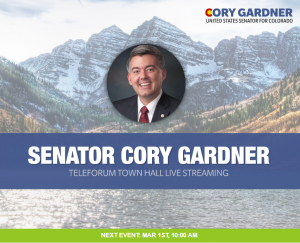Cutting through the spin: Gardner wants to end, not protect, insurance coverage for 400,000 Coloradans
Tuesday, June 13th, 2017Back in March, Colorado Sen. Cory Gardner joined fellow Republican Senators Shelley Moore Capito of West Virginia, Lisa Murkowski of Alaska, Rob Portman of Ohio, in stating that “we will not support a [Obamacare replacement] plan that does not include stability for Medicaid expansion populations or flexibility for states.”
Since then, Portman and Capito have added a measure of definition to this vague statement by endorsing a seven-year phaseout of Obama’s Medicaid expansion, which provided over 400,00 Coloradans with health insurance. Portman called it a “glide path” that would gradually reduce federal Medicaid funding to the states beginning in 2020.
But Murkowski and Gardner are refusing to discuss their current thinking on the Medicaid expansion. The Hill asked Murkowski twice last week if she’d agree to a gradual phaseout, and she declined to say.
In May, Gardner declined to answer a direct question from The Denver Post’s Mark Matthews about whether he supports the plan, in the Obamacare replacement bill passed by the House, to begin the Medicaid-expansion phaseout in 2020.
But Gardner did tell Matthews,“We need to have a glide path that works for the states.”
In the absence of more details from Gardner, journalists are on solid ground reporting that Gardner is on board with ending the Obamacare Medicaid program that covers over 400,000 Coloradans. The only question is the time frame, the number of years in the glide path.
And journalists are also completely justified in reporting that Gardner’s phaseout doesn’t square Gardner’s promise to defend the Obamacare Medicaid expansion, as stated in the The Denver Post’s March 6 article headlined, “Sen. Cory Gardner defends Medicaid expansion as GOP reveals Obamacare replacement.”
During the 2014 campaign, and ever since the first Ryan budget introduced a partial privatization of Medicare, the often repeated message from Gardner was that making dramatic cuts to health programs was a way to protect them for future generations.
Now Gardner is talking about a “glide path.”
These sort of policy justifications can make sense within their own inverted logic, but the plain meaning of the words are likely lost on the average voter. Journalists have the burden of making sure the facts are presented alongside the spin.


